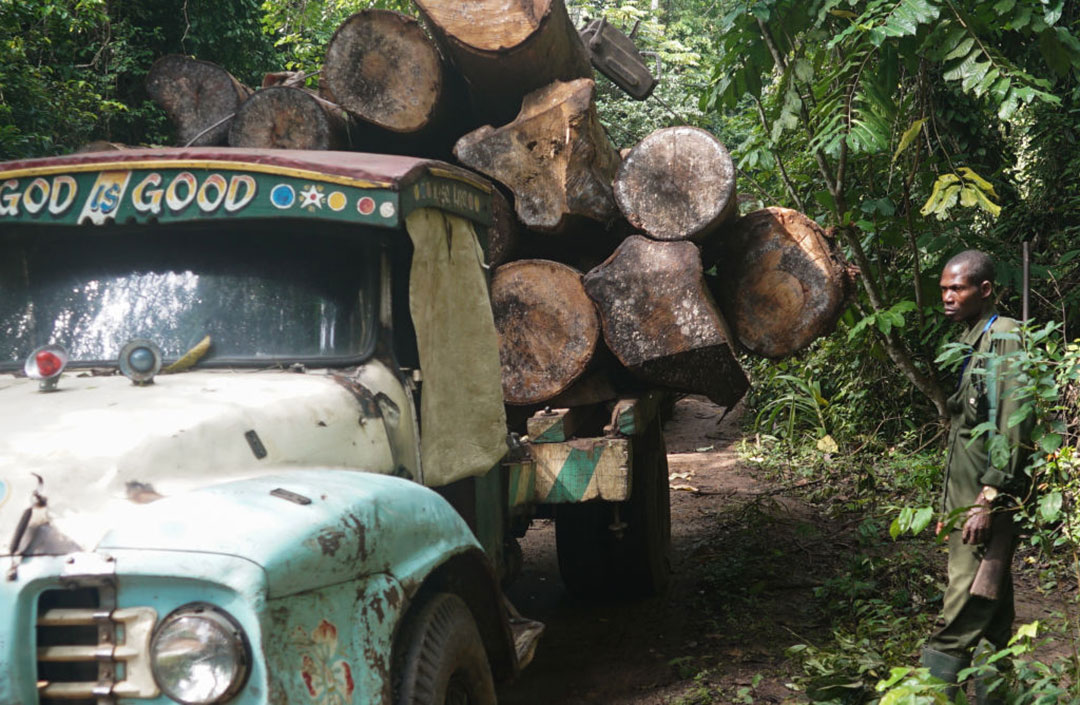Nigeria Halts Illegal Chinese Timber Outfit
ADF STAFF
Isah Lankpene slept in the bush for two days as he and members of his Nigerian forestry task force monitored an illegal Chinese timber operation deep in the woods of Niger State.
They raided and shut down the camp in early November.
Lankpene’s team arrested the Chinese nationals who ran the company and were suspected of being in Nigeria illegally. The task force also found two standby generators, several machines used for cutting and refining timber, as well as containers and trucks used to transport wood to Lagos State, where it was shipped overseas.
“The factory is located inside the bush in Lapai local government,” Lankpene told The Nation newspaper. “We discovered that they have been operating for over one year. Nobody knew they were there until we moved in to nab them.
“To arrest them was not easy.”
It was the largest deforestation syndicate in the state, said Lankpene, coordinator of the Niger State Task Force on Forestry Protection.
Unlicensed Chinese timber operations have threatened Nigeria’s forest ecology and economy for decades. According to Global Forest Watch, Nigeria lost 945,000 hectares of tree cover from 2001 to 2019, a 9.4% decrease.
Apart from losing wildlife habitat and biodiversity, deforestation leads to soil erosion and desertification, an overwhelming trend in Nigeria.
Nigerian Minister of Environment Mohammad Mahmood Abubakar called it a “hydra-headed problem.”
“It is estimated that about 35% of the total land area of Nigeria is threatened by desertification,” he said in a speech on June 17, the U.N.’s World Day to Combat Desertification and Drought 2020. “Unsustainable resources management became more threatened with the impacts of overexploitation through deforestation, overgrazing, and unsustainable agricultural practices.”
One of the driving forces of deforestation in Nigeria is China, which has severely restricted logging in its own forests since 1998.
“The unprecedented demand for rosewood in Nigeria is driven by a rapacious need by China to feed a taste for ornate and luxury furniture by the country’s burgeoning middle and upper class,” according to a 2016 report by the International Centre for Investigative Reporting (ICIR). “Logging of timber, including rosewood, is banned or allowed only under license. But traders have a free rein in the forests across the country because of poor regulations, monitoring and local corruption.”
From 2013 to 2017, illegally harvested Nigerian rosewood logs worth $1 billion were secretly shipped to China, according to a report by the Environmental Investigation Agency, a nongovernmental organization. The report stated that loggers paid Nigerian officials more than $1 million in bribes. It also concluded that the rosewood trade likely helped finance the terrorist group Boko Haram.
Another report by the ICIR in 2019 focused on an illegal Chinese wood charcoal operation in Enugu State, which was shut down after more than a year of logging, producing charcoal and shipping it to China.
“They do things that we the citizens cannot even try,” Lola Idowu, legal adviser to Charcoal Exporters Association of Nigeria, said to the ICIR. “They’re not planting. They didn’t establish any forest. They’re not paying for reforestation.
“There must be consequences.”


Comments are closed.